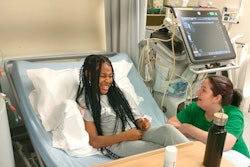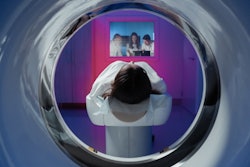The U.K. Royal College of Radiologists (RCR) and Society of Radiographers (SoR) have issued responses to the Chancellor of the Exchequer's budget announcement for the funding of £22.6 billion (€26.8 billion) for day-to-day National Health Service (NHS) spending.
The RCR welcomes the extra funding, but in its statement (https://www.rcr.ac.uk/news-policy/latest-updates/rcr-reacts-to-the-autumn-2024-budget/), it urges the government to explain how the radiology workforce will be increased to meet the rising demand for diagnostics. It estimates that 100 AI-enabled MRI scanners alone would generate an extra 130,000 scans each year, requiring an additional 40.6 consultant radiologists to report.
"Without a focus on expanding workforce capacity, patients will have to wait longer for the results of their scan, delaying the start of treatment," RCR pointed out, adding that it will also seek clarification from the government on whether this funding will cover the continued roll-out of Community Diagnostic Centres, especially in areas of high deprivation.
In a statement released on 31 October, the SoR said the funding package is good news, but the society also expressed concern that it does not address the fundamental cause of waiting lists.
The funding will support the delivery of 40,000 elective appointments each week, one of the main goals of the government in reducing waiting times. However, the SoR highlighted that "the only way" to cut long waiting lists is a focus on the recruitment and retention of radiographers, both diagnostic radiographers and therapeutic radiographers.
A further £1.5 billion (€1.8 billion) has been allocated to new surgical hubs, diagnostic scanners, and beds across the NHS to create more treatment capacity. Also, £100 million (€118.5 million) has been earmarked for 200 general practice estate upgrades.
The society's full statement can be found here.



















